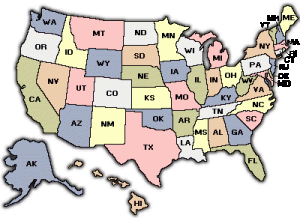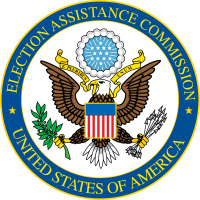
THE HISPANIC BLOG IS THE LATEST HISPANIC NEWS BY JESSICA MARIE GUTIERREZ
President Barack Obama leaves today for a trip to a summit in Latin America that may have as much resonance in domestic politics as in hemispheric economics. Discussions at the meeting of North and South American leaders in the resort city of Cartagena, Colombia, will cover trade, economic growth and the battle against drug trafficking. Yet the White House is mindful that about 16 percent of U.S. residents trace their roots to the region, and that group may play an outsized role in the November presidential election.
“The president desperately needs high voter turnout among Hispanic Americans,” said Douglas Brinkley, a presidential historian at Rice University in Houston. “It doesn’t hurt for him to be in Colombia, and being seen with Latino leaders of the hemisphere is not a bad photo-op in an election year.”
Obama’s campaign is gearing up for a close election fight against Republican Mitt Romney, putting a premium on gaining an edge with any voting group. Obama is actively courting Hispanics — who gave him 67 percent of their votes in 2008 — with a Spanish-language website and by recruiting Spanish-speaking volunteers and using Spanish-language voter registration forms and phone banks.
President Barack Obama addresses the Congressional Hispanic Caucus Institute’s 34th Annual Awards Gala in Washington, Wednesday, Sept. 14, 2011. (AP Photo/Cliff Owen)
“Key swing states that have large Hispanic populations will be extremely attentive” to the trip, said Susan MacManus, professor of political science at the University of South Florida in Tampa. “Many feel that Latin and South America has been ignored.”
Swing State
One of those states is Florida, with 29 of the 270 electoral votes needed to win the presidency and where Hispanics make up 22.5 percent of the population. Before Obama meets with the other 32 leaders at the Summit of the Americas he’s scheduled to stop at the Port of Tampa.The theme for that visit, as at the summit, will be expanding U.S. exports and gaining greater access to Latin markets for small businesses. About 40 percent of all exports from Tampa go to Latin America, and the port means 100,000 jobs and generates almost $8 billion in annual economic impact, according to its website.
President Obama waves as he arrives to speak at the Port of Tampa in Tampa, Fla., Friday April 13, 2012. (AP Photo/Chris O’Meara) CHRIS O’MEARA — AP
Total U.S. exports in the Americas amount to $700 billion a year out of $1.5 trillion worldwide, according to Commerce Department figures. Among the summit participants, Canada is the biggest U.S. trading partner, Mexico is the third largest and Brazil ranks ninth.
Hemispheric Trade

U.S. President Barack Obama speaks during a visit to the Port of Tampa on April 13, 2012 in Tampa, Florida. The President, on his way to the Summit of the Americas in Colombia, used the visit to emphasis small business trade with countries in Latin America.
(April 12, 2012 – Photo by Joe Raedle/Getty Images North America)
“The U.S. economy benefits substantially from our trade in the Americas, and over 40 percent of our exports currently go to the Americas,” Ben Rhodes, Obama’s deputy national security adviser for strategic communications, told reporters in an April 11 briefing. “Those exports are growing faster than our trade with the rest of the world.”
Latin America managed to largely escape the financial crisis of 2008-2009. Brazil (BZGDYOY%) is the world’s sixth largest economy, and the ranks of the middle class have swelled. The World Bank classifies most countries in the region as middle- income or higher. As countries in the region have grown more prosperous, they are less reliant on the U.S., the world’s biggest economy. That growth also comes as the Obama administration has made a deliberate pivot to focus more on Asia.
Diminished Role
Obama is “quite comfortable with the diminished role of the United States in the hemisphere” and that it’s “the natural order of things,” said Andrew Selee, director of the Mexico Institute at the Wilson Center. “The U.S. is going to continue to be engaged but no longer has the domineering authority it once did.”
The summit host, Colombian President Juan Manuel Santos, has an agenda focusing on boosting advances in technology, finalizing the free-trade deal between the U.S. and Colombia, lessening income inequality and improving responses to natural disasters, such as earthquakes.
Obama remains popular in Central and South America, though promises to rebuild cooperation at the last summit, in 2009 in Trinidad, may have fallen short, according to the Inter-American Dialogue, a Washington-based policy group that focuses on the Western Hemisphere.
“The U.S. must regain its credibility in the region by dealing seriously with an unfinished agenda of problems — including immigration, drugs and Cuba — that stands in the way of a real partnership,” according to a policy report issued yesterday.
Illicit Drugs
Bigger issues that aren’t on the official agenda are legalization or decriminalization of illicit drugs and whether Cuba should be allowed at the next summit. Selee said that while he doesn’t expect “dramatic outcomes” from the summit, one area where “sparks” might fly would be the debate raging in Latin America over drugs. The presidents of Colombia and Mexico have called for a discussion about easing penalties for drug use. Obama’s aides say the U.S. will resist such proposals.
Mexico’s President Felipe Calderon (R) speaks to journalists as Colombia’s President Alvaro Uribe listens during a news conference at the presidential residence Los Pinos, in Mexico City November 10, 2008. REUTERS/Henry Romero (MEXICO)
“The president doesn’t support decriminalization,” Dan Restrepo, Obama’s senior director for Western Hemisphere Affairs, told reporters.
There is friction between the U.S. and some summit leaders over restrictive U.S. policies toward Cuba. Ecuador’s President Rafael Correa is boycotting the summit because of Cuba’s absence. The region’s sole dictatorship is the only nation excluded from the gathering of heads of state from the Western Hemisphere.
Brazilian President
Brazilian President Dilma Rousseff told Obama during a White House meeting April 9 that this should be the last such regional meeting without Cuba in attendance. In an e-mail interview with a group of Latin American newspapers, Obama said his administration has done more than any in decades to improve U.S. relations with Cuba and blamed the communist regime for the nation’s exclusion from the summit.
SOURCE: AP/ Pablo Martinez Monsivais
President Barack Obama meets with Brazilian President Dilma Rousseff at the United Nations in September 2011.“We’re looking for a new era in the relationship between our two countries,” Obama said, according to a transcript of the interview published in Spanish by Bogota’s El Tiempo newspaper. “History shows that the longing for liberty and human dignity can’t be ignored forever. No authoritarian regime lasts forever. The day will arrive when the Cuban people will be free to determine their own destiny.”
While Obama moved to ease travel restrictions earlier in his presidency, the U.S. wants Cuba to release political prisoners, increase political freedoms and adopt democratic principles.

File: Barack Obama attends Cuban Independence Day celebrations in Miami in May during his run for president.
Read more: FOX NEWS
“Cuba authorities continue to deny the Cuban people their universal rights and the president will continue to stand up for those rights,” Restrepo said.
The policy is in keeping with those of past U.S. presidents from both parties, said MacManus, the Florida professor. As with other issues at the summit, Obama’s position on Cuba has political implications.
“If Obama can keep some of the Cubans who voted for him last time, appease them with that kind of stance, then that could be the difference” in winning Florida, MacManus said.
Read More: Bloomberg
SUBSCRIBE to The Hispanic Blog to stay on top of the latest latino news, politics and entertainment!
Don’t be shy SUBSCRIBE – COMMENT – LIKE ME -CIRCLE ME AND FOLLOW ME
If you have any questions, concerns or simply would like to get a quote on my Marketing, Public Relations, Social Media and/or Events services, please feel free to contact me.
God Bless and make it a fabulous day!
powered by Influential Access – “Transforming the Ordinary to EXTRAordinary!” – CEO – Jessica Marie Gutierrez – Creator of The Hispanic Blog #thehispanicblog













